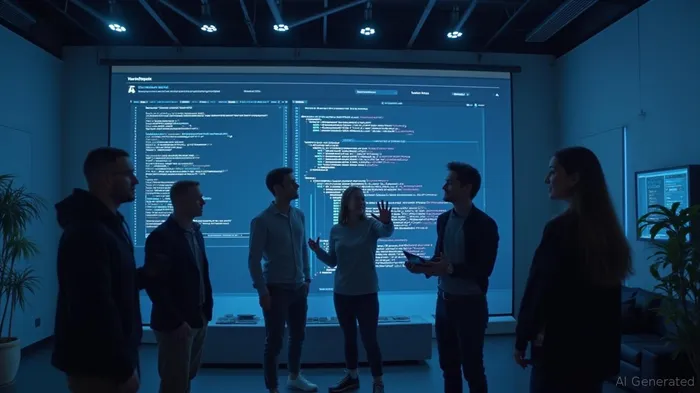Pi Network Launches AI-Powered No-Code Tools for App Development
The Pi Network Core Team has announced the launch of new tools at Pi2Day 2025, with a focus on AI-powered no-code app creation tools and a new staking system to promote apps within the network. These tools aim to democratize blockchain app development, offering users extensive access without advanced programming skills, significantly impacting app visibility and community engagement in the Pi Network.
The Pi Core Team, led by founders Dr. Nicolas Kokkalis and Dr. Chengdiao Fan, unveiled the tools during an official announcement. Dr. Nicolas Kokkalis, Founder and Head of Technology at Pi Network, stated, "Pi App Studio democratizes app development for everyone. Now, anyone can turn their ideas into functional blockchain-powered apps without writing code." These tools offer development and staking capabilities, enhancing app creation and visibility within the Pi ecosystem.
The tools cater to over 60 million users and boost engagement by simplifying app development processes. As a result, the Pi token, the native currency of the ecosystem, is expected to witness increased utility and engagement. The rollout of no-code development tools potentially enhances the utility of the Pi token, although the market awaits more detailed financial and transaction data.
Pi Network, a prominent player in the blockchain space, has launched a suite of no-code tools designed to revolutionize app development. The initiative, unveiled during Pi2Day 2025, includes the Pi App Studio, an AI-powered platform that enables users to create applications without the need for traditional coding skills. This move is part of Pi Network's broader strategy to democratize app development and foster a more inclusive and decentralized ecosystem.
The Pi App Studio stands out for its user-friendly interface, which allows individuals to design applications using natural language instructions. This feature is particularly significant as it lowers the barrier to entry for non-developers, making app creation accessible to a wider audience. The platform offers two primary functionalities at launch: the creation of specialized chatbots that can deliver personalized responses based on user expertise, and an open-ended app generator that transforms functional descriptions into working applications. The rollout of the beta version will be gradual, ensuring a controlled and managed ramp-up phase.
In addition to the Pi App Studio, Pi Network introduced Ecosystem Directory Staking, a mechanism that allows users to stake their Pi tokens to influence the visibility of apps in the Pi Browser. This feature represents a shift away from traditional centralized promotion methods, where visibility is often determined by advertising budgets or opaque algorithms. Instead, the more users stake on an application, the higher its visibility in the directory. This approach not only promotes community-driven development but also creates a feedback loop where genuine community interest prevails over centralized influence.
The introduction of these tools marks a significant step towards a more decentralized and community-driven ecosystem. By leveraging AI and blockchain technology, Pi Network aims to lower technical barriers to innovation and empower users to create and promote applications based on real engagement and community value. The success of these initiatives will depend on their ability to ensure the quality of promoted applications and whether crypto staking will become a true curation tool or merely a new form of economic power.
Pi Network's initiatives on Pi2Day 2025 underscore its commitment to fostering a more inclusive and decentralized ecosystem. By providing users with the tools to create and promote applications, the network is paving the way for new monetization and community governance models. This shift towards a more user-centric approach could redefine the rules of mobile-first Web3, making it more accessible and responsive to community needs.

Quickly understand the history and background of various well-known coins
Latest Articles
Stay ahead of the market.
Get curated U.S. market news, insights and key dates delivered to your inbox.



Comments
No comments yet